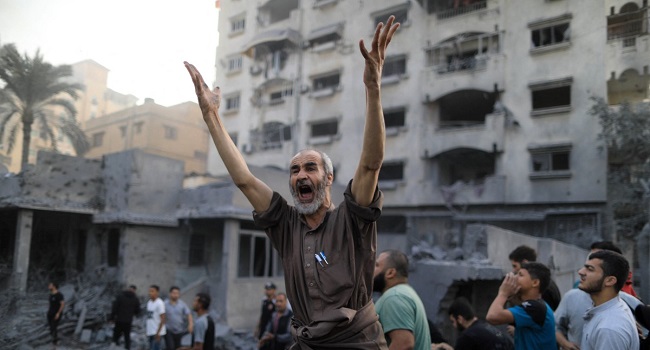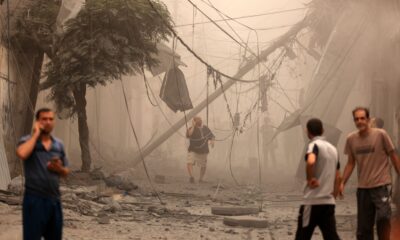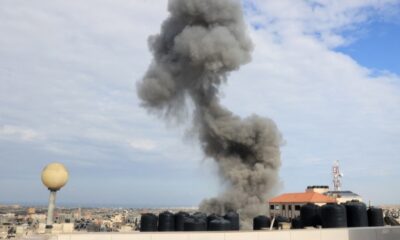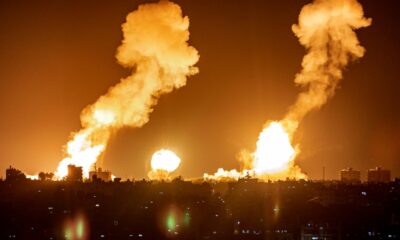Latest News
Israel-Hamas war: Gaza death toll hits 2,215, 1,300 buildings destroyed

In the aftermath of Hamas’s attack on southern Israel a week ago, Israeli airstrikes on the Gaza Strip have resulted in a devastating toll, with at least 2,215 casualties, including 724 children, as reported by the Palestinian territory’s Hamas-controlled health ministry on Saturday.
Among the casualties, 458 were women, highlighting the severe impact of the ongoing violence. The ministry added that 8,714 individuals have been wounded, with the past 24 hours alone witnessing a death toll of at least 324 people.
Israeli Prime Minister Benjamin Netanyahu affirmed that the current bombardment marks “just the beginning” as Israel retaliates against Hamas for their previous attack, which claimed more than 1,300 lives a week ago.
The destruction in Gaza is catastrophic, with more than 1,300 buildings reduced to rubble, as stated by the United Nations on Saturday. The UN’s humanitarian agency OCHA reported that “5,540 housing units” were destroyed within those buildings, and nearly 3,750 additional homes were severely damaged, rendering them uninhabitable.
Furthermore, OCHA highlighted that an additional 55,000 housing units suffered partial damage. The situation has led to an immense displacement crisis, with over 423,000 people forced out of their homes in the Gaza Strip.
Israel’s warnings and military actions have prompted urgent evacuations, affecting an estimated 1.1 million people in the northern enclave. Tragically, evacuees faced danger, with vehicles being hit, resulting in casualties. The lack of safe corridors exacerbated the dire situation, compelling families to flee on foot.
Amidst the conflict, essential services like clean drinking water have become scarce, pushing the population to consume unsafe water from agricultural wells, heightening concerns about the spread of waterborne diseases. OCHA highlighted the damage to vital infrastructure, including water wells, pumping stations, and desalination plants, further exacerbating the crisis.
The persistent full electricity blackout has pushed essential services like healthcare, water, and sanitation to the edge of collapse, aggravating food insecurity. The region remains engulfed in a dire humanitarian crisis as the conflict continues to escalate, urging global attention and efforts to halt the devastating violence and protect civilian lives.
























